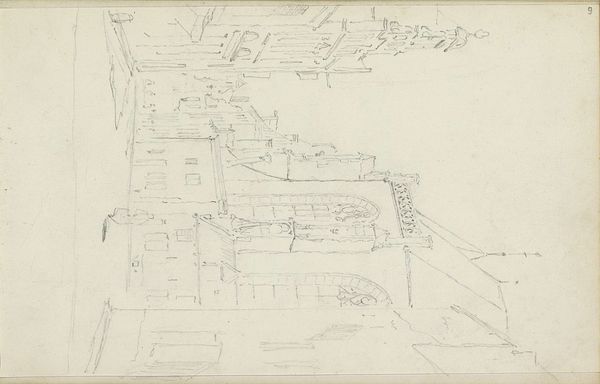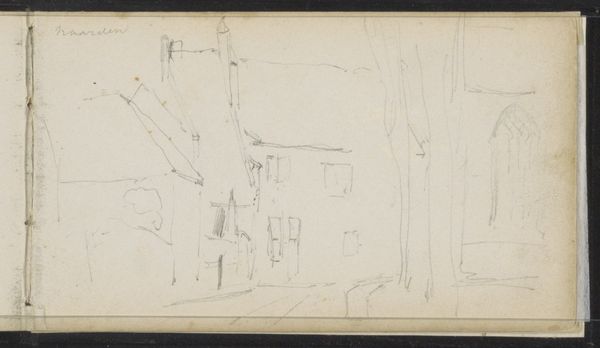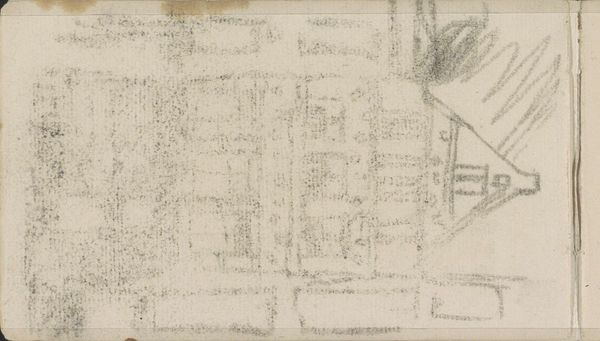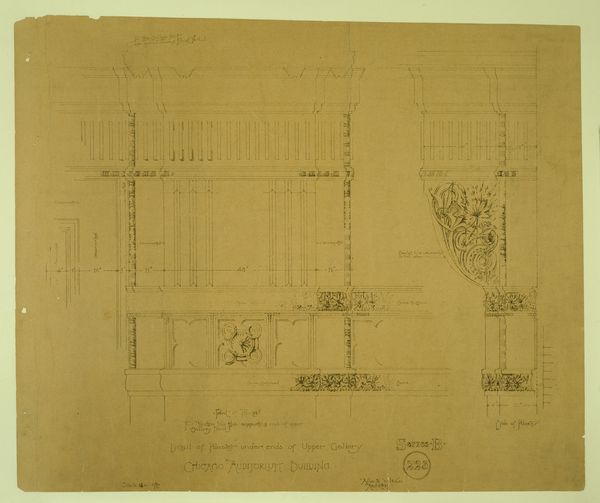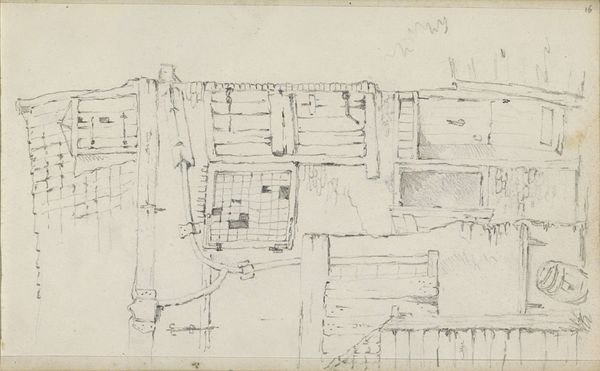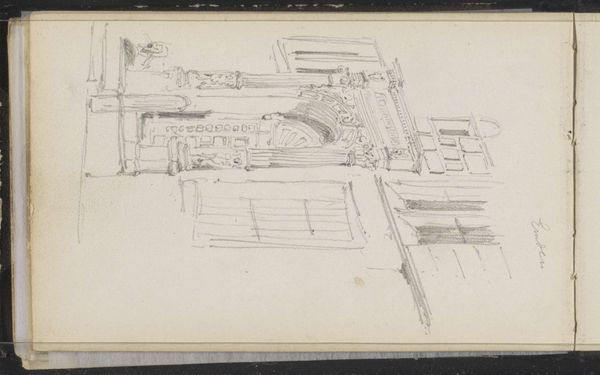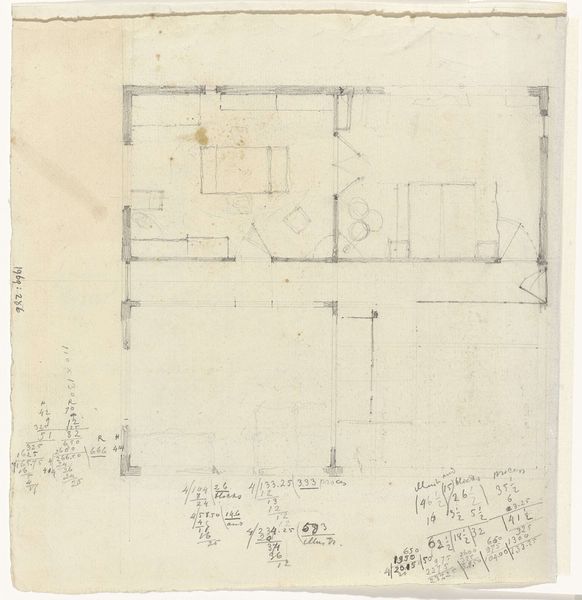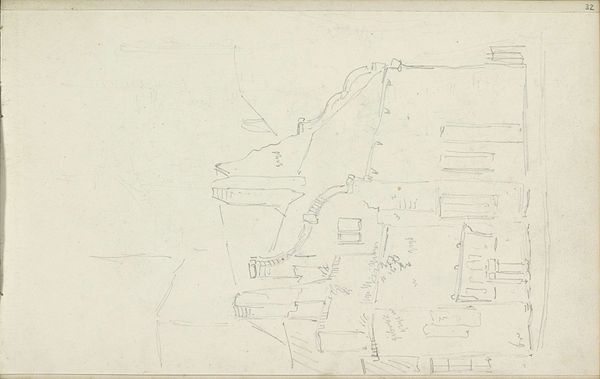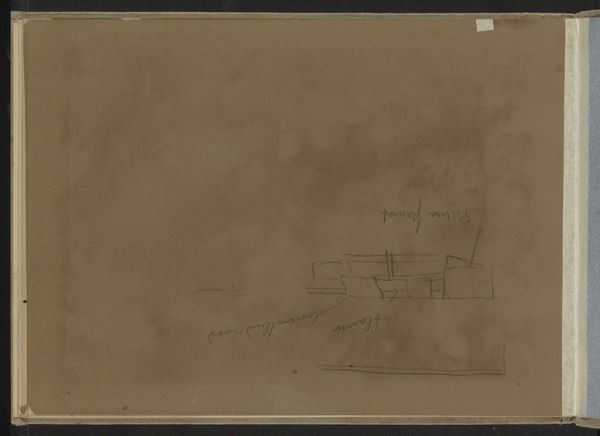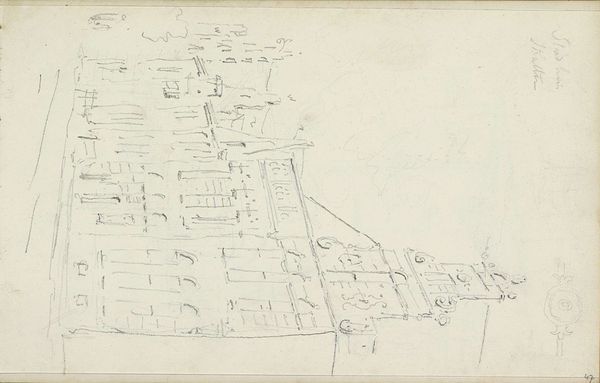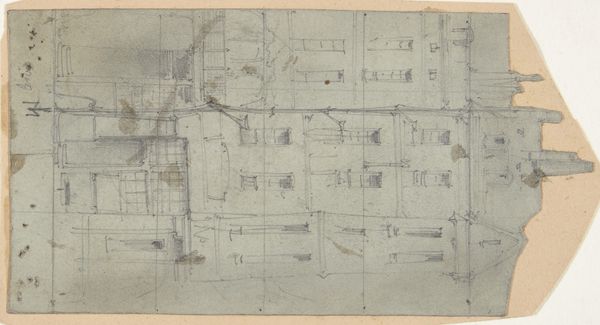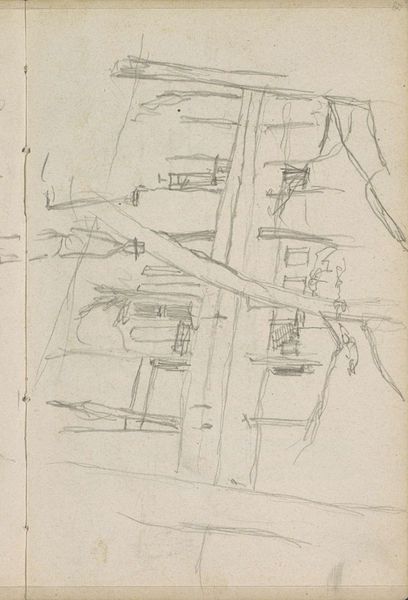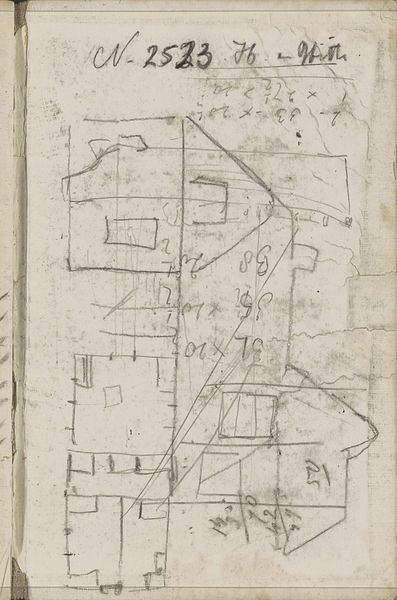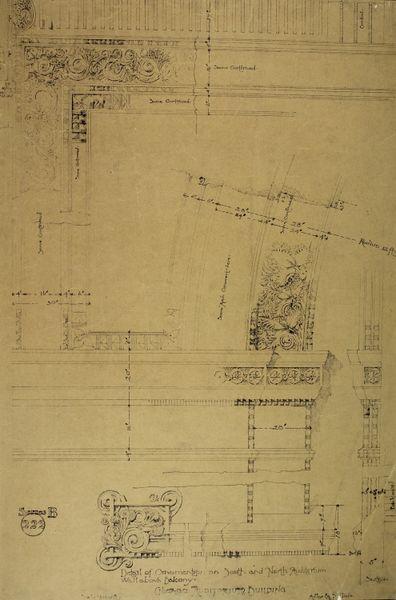
Copyright: Rijks Museum: Open Domain
Editor: So, here we have Willem Witsen's "Abklatsch van de krijttekening op pagina 23," a pencil drawing from around 1897 to 1899. It's incredibly faint and sketchy. I'm curious, what elements jump out at you, especially given its seemingly unfinished state? Curator: Well, immediately, I consider the paper itself. Notice how thin it is, almost translucent? This isn't high-end drawing paper. This speaks to the economic realities of artistic production at the time, even for established artists like Witsen. They weren't always working on pristine surfaces; sometimes, it was about utilizing available resources. What does it say to you that this may be a page from a larger sketchbook, given the title? Editor: That it was about process, not product, right? He's capturing an impression. So, does the title "Abklatsch" - roughly "smear" in German, if I remember correctly - refer to his technique here? Was he making copies and studying them, or reusing drawings that were already available and sketching over? Curator: Precisely. The 'smear' highlights the inherent imperfections in reproduction. This invites questions about authenticity and originality, doesn't it? What labor went into the original drawing that this copies? How does this influence our reception of this copy as an artwork? This 'Abklatsch' also implies a detachment from the hand, the supposed hallmark of artistic genius. He is employing reproductive strategies found in commercial production within the 'fine arts', to question these categories. Editor: I never would have considered the materiality of the paper itself or the implications of the copying technique so deeply. So, it becomes less about what's depicted and more about the conditions under which it was created. Curator: Exactly! This invites us to consider how artistic value is assigned, and by whom. It's a humble sketch, perhaps, but rich with social implications and a challenge to notions of artistic creation. Editor: I'll definitely view sketchbooks differently from now on, knowing there's possibly something deeper regarding the material history and means of reproduction.
Comments
No comments
Be the first to comment and join the conversation on the ultimate creative platform.
